Why John Waters Stopped Making Movies
“There is no such thing as a $5 million independent movie. They want me to go make it like I used to, but I have no desire to do that. I did that. I have 17 movies, they’re all playing everywhere in the world, more than ever. I’ve spoken. I can’t afford to make a movie the way they want me to do it. I make way more writing these books. The main thing is, when DVDs overnight died, that ended the safety net. That was profit. All foreign deals fell through. Nobody wants any movie that can’t play in China. Nobody wants any movie that has to have any subtitles. They just want explosions. They want $100 million movies that are tentpole movies. The worst thing they want … is a comedy based on wit. And if I was doing something, that’s what I’d try to do.” — John Waters’ new book sounds pretty good, for what it’s worth.
The Dangers of Playing 'Magic: The Gathering' in Public
by Matthew J.X. Malady
People drop things on the Internet and run all the time. So we have to ask. In this edition, PolicyMic writer Jared Keller tells us more about adults who like to spend time playing “Magic: The Gathering.”
Two grown ass men playing Magic in Herald Sq pic.twitter.com/2klxhwB0eM
— Jared Keller (@jaredbkeller) May 16, 2014
Jared! So what happened here?
I just started a new job a few blocks off Herald Square, and while strolling to catch the 1 downtown, I spotted two gentleman engaged in a highly intense game of “Magic: The Gathering” in a near-empty Subway. It was a sort of depressing scene, the kind of thing you’d maybe find if you Googled “geeks”: two guys of stocky, even portly build, with beards that looked like something a blind bird built, wrapped up in a fictional world, oblivious to the thousands of opportunities for social interaction swirling around them. It sort of reminds me of the time a friend spotted Jonah Lehrer buying bulk packages of frozen chicken at a Whole Foods a few days after his plagiarism scandal broke: a single snapshot of a sad, lonely life.
I kid: Plenty or normal, well-adjusted people play Magic (although maybe not in the middle of Herald Square on a warm Friday evening). I even know some of them.
Am I completely out of it for not knowing that adult-aged human beings are still playing “Magic: The Gathering” in New York City and elsewhere on planet Earth?
Maybe! I’m kidding, sort of, in my description above. I have close friends who are highly functional, wonderful people with excellent social skills who are also intensely good at Magic. They just don’t normally play in public because then they’d end up in tweets by jerks like me. But damn they’re good at it.
I’ll admit that I have a Magic deck, left over from my years working at a summer camp. I worked with 9–12 year olds and used to get stuck with a lot of, um, “indoor kids.” (This is likely because I lack hand-eye coordination, and ball-throwing and sport-catching are tricky.) Magic was a great way to get them focusing on something that wasn’t my face, so I could engage them in conversation and check up on them and make sure they were having a good time. (There’s some scientific research that shows people are more forthcoming in conversation when they’re not looking at each other, which is why baseball games and movies are great for first dates or parent-child bonding.) And, to be honest, I relished those games. Magic saved me as a young kid, gave me something to do that was social and engaging that I was good at, and gave me a safe place to hone my social skills so I could survive through middle school. I stopped playing in high school (girls and drinking got in the way), but it was a significant part of my life. I was (well, I work in media, so I guess I still am) a big fat geek, and Magic will remain part of who I am.
But it ain’t just for geeks! Or, at least, for overt, neck-beardy, fedora-wearing geeks. My close friend Kyle was an all-star soccer player in college, built like a brick shithouse and a total dreamboat with the ladies, but give him a Magic deck and he would dismantle people left and right. Everyone’s entitled to their guilty pleasures, and Magic is one of them for many people. Then again, those people may have been geeks like me back in the day. Some of them grow up and stay geeks, and some of them grow up and become super normal but have retained their geeky impulses, a leftover keepsake from their childhoods (ask me about the Justice Society of America sometime). But geeks are super cool now, right?
Then again, busting out your Magic cards depends on circumstances. I’m happy to play, maybe once, for old times sake, with a few friends so we can sate our nerd impulses and bro out on bourbon and mana. But it’s just not appropriate sometimes, like the time we picked my buddy up for Kyle’s bachelor party in Maine and he brought a giant, custom-made wooden cube with something like 1,500 Magic cards for building custom decks. We were going to spend all weekend drinking and disturbing the peace, so I don’t think that a 4/4 trample was an appropriate party accessory (although we also dropped $250 on plastic superhero masks, so maybe that’s debatable).
Lesson learned (if any)?
Let people do what they like. If they want to play Magic, let them play Magic, unless it’s distracting them from more age-appropriate things like paying a mortgage, getting a job, or having children. It’s just like a video game on cardstock anyway. But if you’re going to do what you love, maybe don’t do it in public because some jerk like me may tweet your photo without knowing a damn thing about you. It reminds me of that guy who was an open object for Internet ridicule but was actually a perfectly decent person with an interesting backstory. Everyone has a story, and most people are just trying to be happy and live their lives in the best way they know how without doing harm to anyone.
Just one more thing.
People are judge-y creeps, and I regret sassing these two men. They looked like they were having a fun time. And you know what: Who really gives a shit what some jerk passerby like me thinks? Cast like nobody’s watching.
Matthew J.X. Malady is a writer and editor in New York.
A Sunny Day In Glasgow, "Bye Bye Big Ocean (The End)"
Here is a beautiful wall of sound that takes about 20 disorienting seconds to really start to hear. But then: bliss!
How to Make a Good Salad Without Dumb Leaves

When someone says salad, your first thought is probably a bunch of leaves, like lettuce or spinach or kale, plus some other stuff, and a dressing. Here’s the thing about the word “salad”: it means nothing. It doesn’t mean something cold; it doesn’t mean something raw; it doesn’t mean something with lots of different ingredients; it doesn’t mean something vegetable-based; and it CERTAINLY doesn’t mean a pile of leaves.
Leaves, even the stronger-tasting ones, are filler. No one has ever once thought, “Dang, this salad is good, but it’d be more good with more lettuce in it.” This idea of a leafy salad is perpetuated by make-your-own-salad joints that ask you to pick which kind of leaves you want. Do you want the spinach? How about the baby spring mix? Have you ever said “no leaves, thanks?” THIS WILL FLUMMOX MOST SALAD-MAKERS.
But there are a lot of reasons to ban leaves from salads! They go bad quickly, forcing you to consistently throw out half of each bag of salad greens you buy; they wilt even once they’re in the salad; they cannot be kept as leftovers, ever, since they rapidly turn into slimy organic compost. Also, making your salad consist of anywhere from thirty to sixty per cent leaves really limits your creativity. So let us forgo leaves. Let us not require our salads to rely on our least-favorite ingredient. Let us shape our own salad destiny.
Here are some good leaf-free summer salads.

1. Some version of a som tam salad.
Som tam is a Thai salad consisting of green, unripe papaya as its base. Other essential ingredients include peanuts and a lime/fish sauce dressing. Here is a good recipe. But it, like all salad recipes, is flexible. If you can’t find green papaya (I usually cannot!), you can substitute pretty much anything that’s crunchy and mild. Cucumber, zucchini, summer squash, sugar snap peas, and green beans all work very well when raw or very lightly cooked. You can substitute brown sugar for palm sugar, sambal oelek for fresh chili, and omit the dried shrimp if you can’t find any. The dressing — savory from the fish sauce, tart from the lime juice, sweet from the sugar, and spicy from the chili — is PERFECT. It can be hard to go back to vinaigrettes after you’ve made it. Note: this can also be done as a stir-fry (AKA “hot salad”): stir-fry some garlic, ginger, scallions, and chili in the bottom of a wok, add peanuts, then add in whatever (non-cucumber/mango) vegetable you’re using. Top with the same dressing.
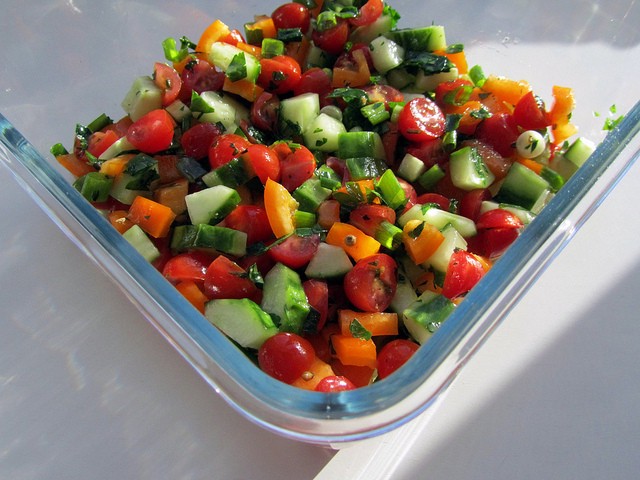
2. Israeli salad
Israeli salad can and should only be made in the summertime, when you can get good tomatoes. Do not make this with bad tomatoes! If you do you’ll eat it and be like “IDK that was fine, I guess.” At its core, it is very simple: chopped tomato, cucumber, red onion, and parsley, with lemon juice and olive oil. But you can add lots of things to it: chickpeas for protein or feta cheese for salt and creaminess or bits of toasted pita chips for more crunch are both very good. This recipe recommends adding sumac. I’ve never done that, but sumac is good as heck; maybe I’ll try it and maybe you should too.
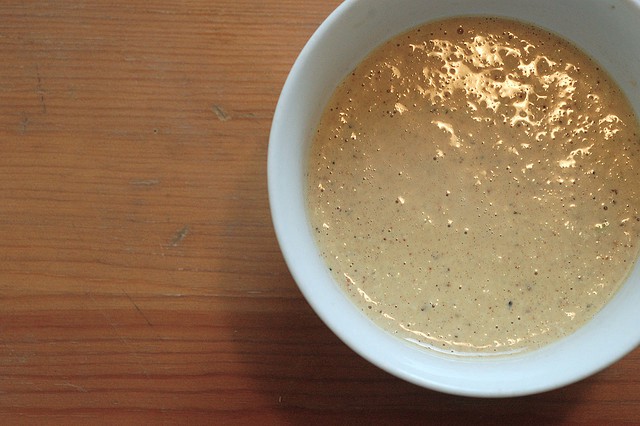
3. Non-leaf Caesar salad
Caesar salad is, like, really delicious, if it’s done right. That anchovy-mustardy-lemony dressing is pretty amazing. So don’t ruin it by dumping it on some dumb Romaine lettuce that can never really appreciate its charms. Caesars are great with pretty much any raw vegetable, but right now is asparagus season, so let’s do that! Here’s a good recipe.
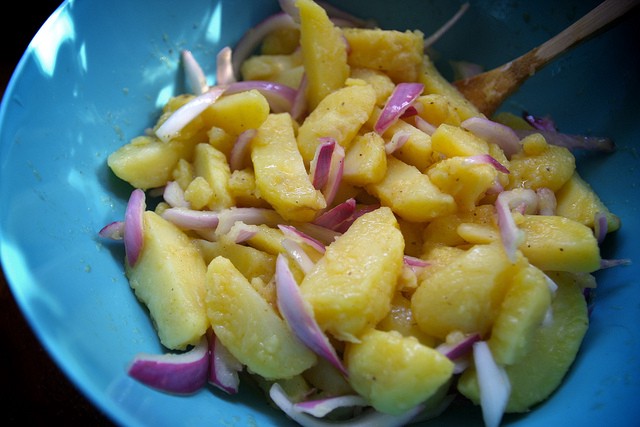
4. Potato salad
I like the supermarket jugs of near-mashed mayo-y picnic salads as much as anyone, and I appreciate that potato salad has no leaves, but I think — as with coleslaw — that a vinegar-based dressing makes for a better, more refreshing, less-likely-to-make-you-feel-like-you’re-gonna-ralph salad than mayonnaise. Mark Bittman has a good recipe for a potato salad with a mustard vinaigrette, which I have tried and which is excellent. This salad is also good with pickled red onion/shallot.
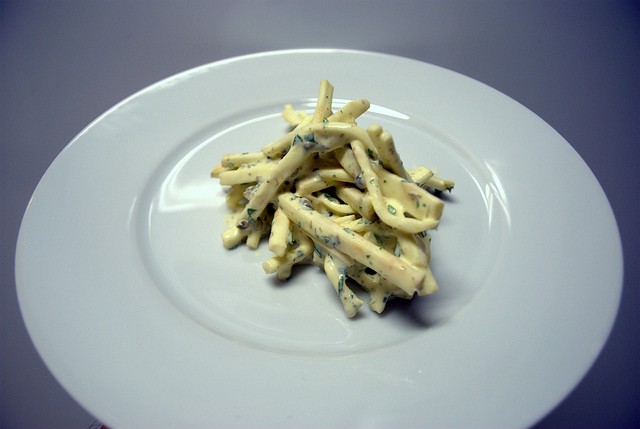
5. Celeriac remoulade
This is a Jurassic-era French recipe, the kind of thing Julia Child would make and that I feel like you’d have a hard time finding in Paris today. I first had it in Montreal, where they still serve a lot of these old-ass uncool French dishes, and MAN IT IS DELICIOUS. Celeriac, or celery root, is the, um, root of the celery plant. It looks like a dumb idiot gnarled cancerous root system, but if you cut away all that nonsense and peel it, it turns out to be this fragrant delicious root vegetable that’s reminiscent of, but not quite like, celery. Celeriac remoulade calls for raw, grated celeriac, plus a very sour mayonnaise (the sourness coming from mustard and lemon juice). It’s kind of like French coleslaw! Here’s a good recipe.
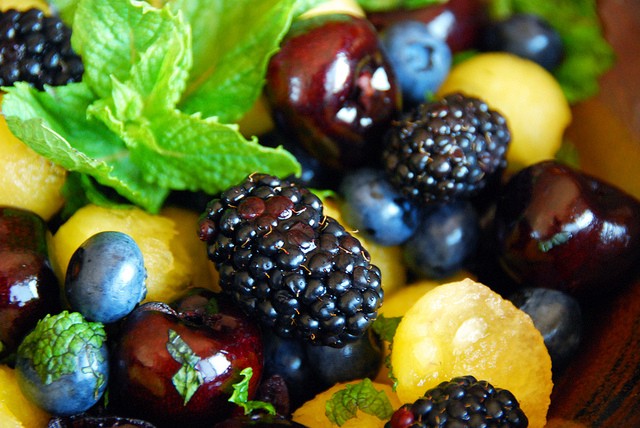
6. Fruit salad
I LOVE FRUIT SALAD. Never ever buy a fruit salad. Always make your own fruit salad. If you make your own fruit salad, you will never again eat cantaloupe or honeydew with the flavor and texture of a raw Idaho potato. You are garbage, prepackaged fruit salad melon! Get in the garbage! Anyway, the key to fruit salad is to not be lazy. Don’t put a segment of orange or grapefruit in there with the pith or skin still on it. Supreme your citrus. Do not put whole strawberries in there; trim and slice them. Fruit salad should have a dressing, and it should have fresh herbs, like chopped-up basil and/or mint. Always. It’s also good to squeeze a little bit of lime juice and maybe some honey over the top to add some extra kick. As for ingredients, I don’t care, add literally whatever you want, but try to have a variety of flavors and textures. If you have something sweet and soft, like a banana, try to add something crunchy and tart, like a Granny Smith apple. Also, avocado is a fruit. Add it to fruit salad! Especially if you have grapefruit in there too.

7. Chana chaat
Chana chaat is an Indian chickpea salad, although I don’t think they refer to it as a salad? it seems like a salad to me. Anyway, chana chaat is basically chickpeas with a dressing, often with tamarind. This recipe is pretty good, although obviously you can use canned chickpeas and cumin powder (instead of toasting and grinding whole cumin seeds). Sure, it’d be better if you made your own chaat masala spice blend with whole spices and sure it’d be better if you used asafoetida (a spice which smells like actual poop), but, like, you don’t need to. Mostly this salad is about the chickpeas and the tamarind dressing, which is spicy and sour and sweet all at once. (Tamarind paste can be found in Indian and Mexican markets or Whole Foods, obvs.) I’d recommend adding a few things to this recipe (not leaves!), like sliced radish or cucumber or carrot or cauliflower for some crunch, and maybe some boiled potatoes because potatoes are good.
Armed with these recipes you can go forth and ENJOY your salad, rather than just eating it because it’s salad and you’re supposed to eat it to look thin and beautiful even though it looks and tastes like something you raked up. Eat good salads! Leave Leaves Behind!
Dan Nosowitz is a freelance writer/editor who lives in Brooklyn. He has serious opinions about the MTV Real World/Road Rules Challenge.
Photos by Dwight Sipler, Young Sok Yun, Lynn Gardner, Jacqueline, tracy benjamin, Daniel, madlyinlovewithlife, and Garrett Ziegler, respectively, via Flickr Creative Commons
All Hail the Mega Media Monopolies
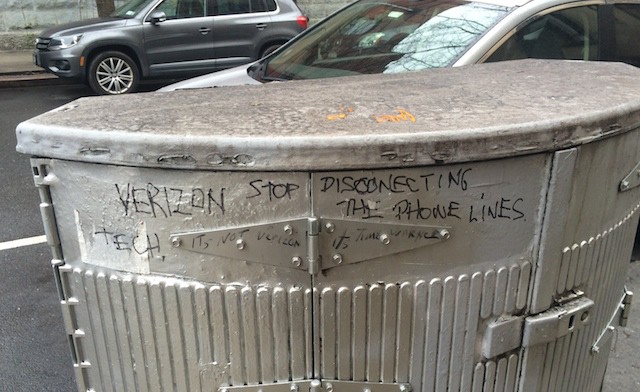
The book industry is getting comfortable with the m-word: They are beginning to like the way it feels when it leaves their lips, the way it reads in interviews, the way it sounds in public conversation. Popular airport storyteller James Patterson recently told BookExpo: “If Amazon’s not a monopoly, it’s the beginning of one.”
Amazon’s pointedly cold conflict with Hachette, a company with a major part in Amazon’s past and little obvious role in its future, at first felt personal — like, there must have been some bad blood, or a grudge, for Amazon to effectively de-list one of the largest publishers in the world, right? But the reality is worse: Amazon’s tactics are the rational actions of an organization with no real peers and an outlook of pure domination: Barnes and Noble has effectively given up on ebooks and is dying, generally; Amazon’s biggest remaining ebook competitor was neutralized by the Justice Department due to antitrust concerns, which somehow sort of made sense at the time but is, in retrospect, mind-boggling.
Amazon’s behavior is of a type we might see a lot of this year — bald, unapologetic power-wielding by companies that provide basic services — as the foundational companies in our all-important telecom and media infrastructure muscle and merge themselves into unaccountable self-perpetuating giants. 2014 is the year of the Time Warner/Comcast merger, which will occur against the backdrop of an FCC with no convincing interest in regulating the internet and at the despair of every single customer involved. AT&T; and DirecTV will also merge because…. nobody at AT&T; could come up with a good reason not to? I guess you don’t want to be a merely massive company in a landscape of incomprehensibly vast multi-industry money-warping entities. You would feel so helpless!
Further down the stream, Facebook is doing everything it can to monopolize media distribution — if everything goes to plan, the company will own the next giant link-sharing service, in WhatsApp, so publishers, get your stories packaged and ready for texting!
It all feels very sudden, but it’s been a long time coming. The cellphone companies and cable companies have been anticipating some sort of mass consolidation for years, and Amazon has been grasping at monopoly status ever since it survived the first dot-com collapse. These companies are already comfortable acting like monopolies, too: Deal with Amazon in anything other than a customer service capacity and you’ll find yourself mired in something that is unmistakably uncaring and bureaucratic; deal with AT&T; or Comcast or Time Warner in any capacity and try feel anything but helplessness.
On the other hand, choices are stressful.
How the Other Half Condos

No one can afford to live anywhere, at least not in New York City or San Francisco, unless, of course, you can afford to buy a whole place to live, but then you have other problems, like all of the other people who can afford to buy a place to live, because there aren’t that many places to live, even if you are capable of purchasing one outright:
And just 1,163 new condos are expected this year in prime Brooklyn neighborhoods, according to Corcoran Sunshine, a new development marketing company. Fewer than 800 will come online next year. That’s nothing compared to the 10,000 new condominium units slated within the next three years in Manhattan — though that borough is also suffering a shortage…How tight is the market in Brooklyn? There are seven units in the building at 875 St. Marks Ave. in Crown Heights. At last month’s open house, about 300 people showed up.
Has a day gone by in the past year where L.A. has not sounded like a better place to exist, except for like, the days with the earthquakes?
Photo by Joseph
Dispute Framed
“Liberal legislators are holding up Gov. Cuomo’s nomination of an 83-year-old conservative to CUNY’s Board of Trustees because he once called Lady Gaga a “slut.’” — The Post enters the performative period of its decline.
Bear Saved
The road, which seems vast and open, but is in truth bounded and finite, designed to hurl vaguely aerodynamic rectangular projectiles recklessly, endlessly forward, is the world we live in. The tiny bear is us. And we wish, no, we hope, that somewhere out there, a bigger bear is watching, waiting to save us, perhaps right now, on a Friday, this Friday, at this moment, 5:30 p.m. It’s over. This week is over. Where is our bear?
New York City, May 29, 2014

★★★ The coolness and the humidity seemed like they could have reached some perfect balance, but combined instead merely to cancel each other out, making it almost sweltering without being warm. The morning light had a hard, acrylic clarity; the two-year-old — riding on shoulders, pointing out contrails — added his own fumes and energy to the mix. The leaves hung low, and the streets and sidewalk were a source of spectacle for discussion: a CitiBike rider struggling with the rack, a trio of police with one jotting notes or a citation. By afternoon, the air had improved, and the two-year-old had settled into an overdue torpor. Sun squeezed through the blinds to sparkle in the nap-sweat on his scalp, where it showed through his still-fresh buzz cut.
For Sale: The Private Letters of David Foster Wallace
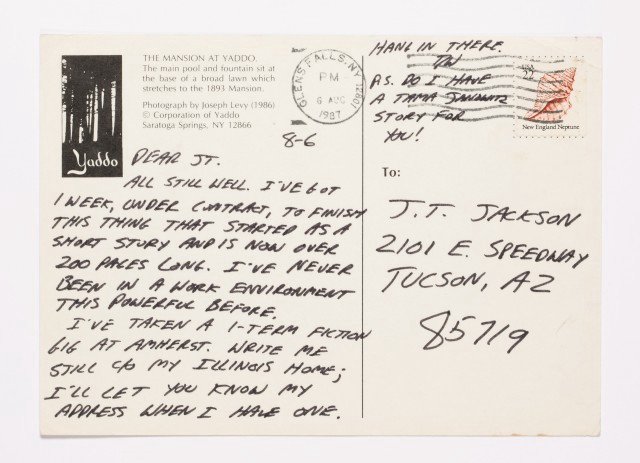
JT Jackson was David Foster Wallace’s friend and occasional muse at the University of Arizona MFA program they attended together in the nineteen eighties. Or he was Wallace’s old pot dealer, who is now cashing in on the late writer’s legacy. It depends on whom in the inner Wallacesphere you ask. “If JT was a more successful writer,” one person said, “we wouldn’t be having this conversation.” Another described him as “a real character” at the beginning of our conversation, but by the end, he was using words like “charlatan” and “erratic.”
On June 3rd, Sotheby’s is auctioning off a small lot of correspondence sent to Jackson by Wallace over the course of a decade or so — four postcards and eight letters — in addition to an unpublished manuscript of “Shorn,” a short story written for a seminar that would eventually be rewritten and included in Brief Interviews with Hideous Men, and a presentation copy of The Broom of the System. The auction is expected to fetch between twenty and thirty thousand dollars.
The correspondence is full of intimate and honest dispatches about Wallace’s life. “I’ve never been in a work environment this powerful before,” Wallace wrote on a postcard from Yaddo in 1987. “It is very hard for me getting clean,” he wrote in 1990, from Boston. And while on book tour for Infinite Jest, in 1996, Wallace sent a note, “WAY MORE FUSS ABOUT THIS BOOK THAN I’D ANTICIPATED. ABOUT 26% OF FUSS IS WELCOME. AS YOU SAID YEARS AGO, ‘YUPPIES READ.’”
In Every Love Story is a Ghost Story, D.T. Max’s acclaimed biography of Wallace, which quotes much of the correspondence, Max clearly states that “JT helped Wallace in crucial ways.” Wallace was the son of academics, Max writes, and had led a relatively sheltered life. Like most writers, Wallace was drawn to those with interesting experiences; by the time Wallace had met Jackson in Arizona, he had been a marine and survived being hit by a truck, which had left him in a coma.
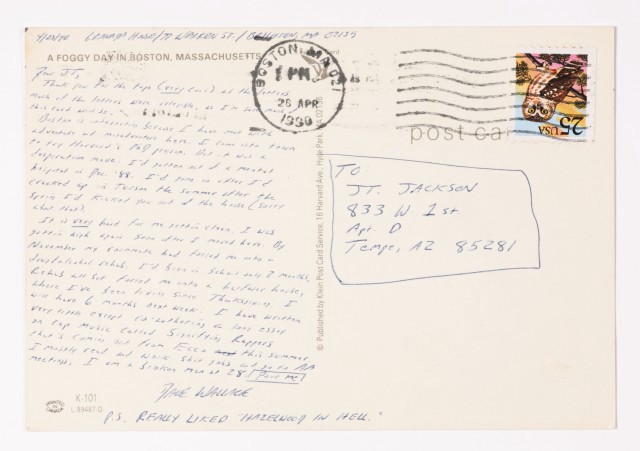
Matt Bucher, who runs the David Foster Wallace listerv, also doesn’t doubt Jackson’s importance to Wallace, but suggests that Jackson isn’t the best teller of his own story, a quality that he shared with Wallace: “If you met [Wallace] at a party or a reading, you’d have a really negative impression of him,” Bucher explained. “He didn’t like social situations, and negative interactions were frequent.” Today, Jackson remains reticent to speak to the press, and frequently responds in verse. When I first emailed him for an interview, he replied:
Alexis
Ths fool jarhead s a bit odd
abit more open thn some
thus susceptible t sayng fool things
n metaphorical ways
n th penance f such public poetry
r assertion f some obvious
but specifically obscured
power at play
steams those t whm th notional benefits stream
He even denied ever selling drugs to Wallace in verse:
Never dealt dope or anything else
Daves demented dissolute drug dealers had MDs n PhDs in psychology
whov made America nto thr guinea pigs
(silence tht slur)
but really
This might come as little surprise to anyone who has read a list of favorite poets that Jackson recently posted to the Wallace listserv:
carolyn forche’ elizabeth bishop Ai Lucile Clifton gwendolyn brooks yusef kumanyakaa amiri baraka
yeats
coleridge
keats
whichever fool wrote the sonnets ascribed to billy boy buffoon of Avon
sappho
homer
mohammed
rumi hafez
on,
and on
beat on
ferlinghetti
gregory corso
wc williams and his protege Alan G.
kenny burke
harry chapin
bruce springsteen
woody guthrie
bob the zimmo
what more y’need
mickey newberry?
let us see
Thom Gunn
mentioned
and again Auden
and Maya Angelou
and friend Sherman (not of Peabody, the native Alexie, basketball and slam king)
who gnew?
have fun with this thread
the poet was heard said
semper fi
friends
pc
out
jt
poetry preferred
According to Jackson, when he first decided to sell the correspondence and manuscripts, he contacted Bonnie Nadell, Wallace’s literary agent, and the Ransom Center at the University of Texas at Austin, which acquired Wallace’s archive in 2010. The archive has continued to grow with purchases and donations from Wallace’s editor, Michael Pietsch, Nadell, and others, including Jackson, who sold the center a small collection of workshop manuscripts two years ago. However, Megan Barnard, the associate director of acquisitions and administration at the Ransom Center, told me that Jackson “did not come to us” with the Sotheby’s lot.
Jackson’s history with the center appears fraught: During negotiations for the items he sold two years ago, he believed that they would catalogued and made available to the public. Recently, however, Jackson took to the comments of a blog post written by Barnard to ask, “did those ever get catalogued n put out?” Other materials acquired by the center around that time have been publicly noted, but “I’ve never seen any announcement or anything on their website,” Bucher said of Jackson’s materials.
Jackson would not tell me how much money he received from the Ransom Center in 2012; one source suggested that it was a paltry sum, just enough to pay for a flight out from Arizona and a hotel. Barnard wouldn’t speculate as to whether or not the center would have purchased the current lot, much less how much it would have paid. Two prior auctions of Wallace materials, overseen by Richard Austin, Sotheby’s head of books & manuscripts — career highlight: bringing an unrecorded Edgar Allen Poe manuscript to auction — have been sold for far more. Last June, Alice Elman, the wife of the late writer Richard Elman, sold twenty-one letters, one postcard and a forty-one-page photocopy of the short story, “Little Expressionless Animals,” for a hundred and twenty-five thousand dollars. Susan Barnett, a writer who never met Wallace, but corresponded with him between 1997 and 2007, sold fourteen letters, five cards, eleven postcards, and a typescript draft of Wallace’s 1985 undergraduate thesis for seventy-five thousand dollars. “Both went to private collectors, which is very pleasing,” Austin told me. “It bodes well for the market.”
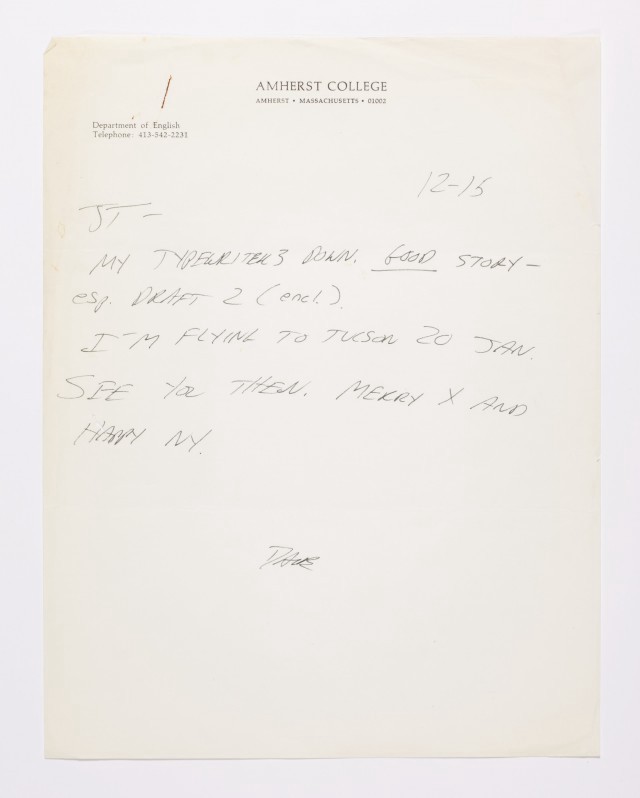
Access to materials remains a tense issue. The Ransom Center’s mission is to acquire, preserve, and provide access to cultural materials for the purpose of “scholarship, education, and delight,” but private collectors are under no such obligation — though Sotheby’s has duly passed on research requests to the winners of the prior two auctions. Nonetheless, if the lot falls into private hands, future biographers may never again have access to the letters. (Barnard would not comment on whether the center would place a bid in next’s auction, but it has a robust acquisitions budget.)
Whatever the fate of the materials, Jackson told me that because of his medical needs, he has little choice. “I have to do this. I don’t especially want to, but if I don’t do it, my circumstances can’t ever improve. America doesn’t treat this class of workers well.” Besides, even if “the husk is going private,” he added, “the nutrition has already gone public.”
Alexis Coe’s first book, Alice+Freda Forever: A Murder in Memphis, will be published later this year. She has contributed to the Atlantic, the Paris Review Daily, Slate, the Toast, the Hairpin, and many other publications.
Would you like to buy something weird? Hammer Time is our guide to things that are for sale at auction: fantastic, consequential and freakishly grotesque archival treasures that appear in public for just a brief moment, most likely never to be seen again.
All images by Sotheby’s
This piece has been updated to include Jackson’s denial that he ever sold drugs to Wallace, and to correct the spelling of “Elman.”
